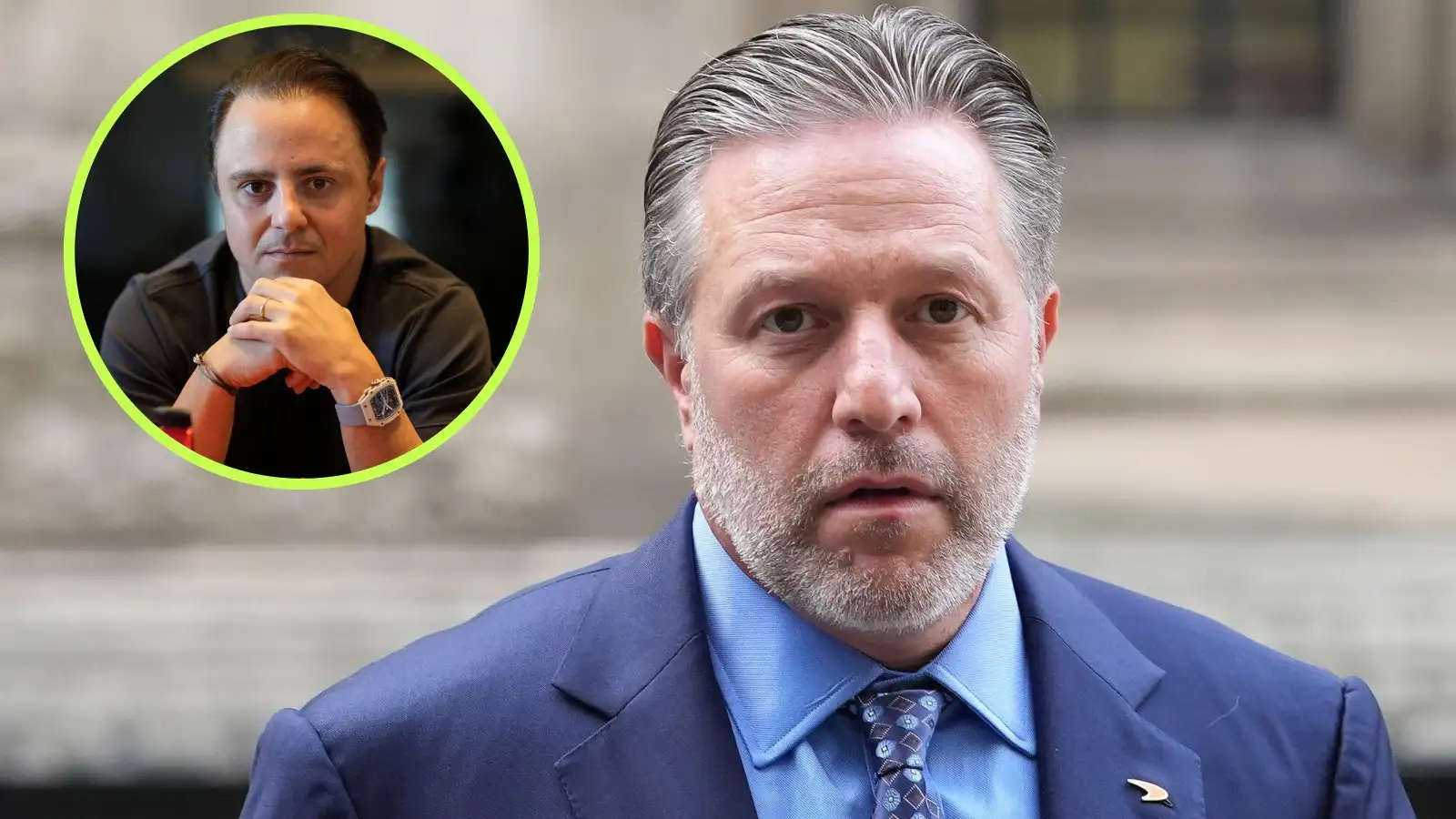While Formula 1 has been on the sidelines between grands prix, some of its most famous faces have been gathering in an unremarkable building in central London.
The Circuit Commercial Court has been playing host to an extraordinary fall-out between McLaren and Alex Palou, the former future of their IndyCar team, and his refusal to honour a contract.
McLaren is suing the generational IndyCar talent and some of his sponsors for more than $20m, claiming they lost that amount when Palou decided to renege on a deal to join an outfit that has been described as ‘second class,’ but with every passing day, more dirty laundry is being aired, posing the question of whether it was all worth it for McLaren in the first place.
Front and centre of the court proceedings has been Zak Brown, McLaren Racing’s CEO and one of the most recognisable faces in modern Formula 1.
At the centre of the case is the relationship between Brown and Palou and promises that may or may not have been made. Palou’s team argues that he only ever agreed to join McLaren with the prize of a future F1 seat. McLaren claim there was no such deal agreed.
In presenting their defence, Palou’s team has gone to the trenches. They have accused McLaren of using F1 as a negotiating tactic when it was never really on offer. They say McLaren hid negotiations with Oscar Piastri and the first time Palou was made aware of the Australian joining McLaren was his infamous tweet in August 2022.
MORE ON MCLAREN ON F365
👉 Oscar Piastri to Ferrari ‘could be coming from Red Bull’ says former F1 driver
👉 McLaren’s new priority? Why F1 title defeat won’t crush Lando Norris or Oscar Piastri
👉 Fresh Oscar Piastri evidence emerges as McLaren v Alex Palou case continues
It is Brown that they have most targeted. Palou’s lawyers argued that Brown had never wanted to sign Piastri and that it was instead the choice of Andreas Seidl, McLaren’s former team principal. Brown allegedly said that if Piastri did not pass muster in 2023, the seat would be Palou’s in 2024.
Brown’s team have denied any such guarantees, with the American reportedly snapping back at accusations he was speaking “absolute rubbish.”
Like a messy divorce, the whole case feels like one big shame and one that perhaps both parties would have, in hindsight, preferred to avoid, but what it has also done is peel back the curtain on the murky world of Formula 1.
Not a day goes by when some rumour or report hits the headlines — this driver is going there or this driver wants to leave. The latest has Oscar Piastri moving to Ferrari, a switch that does not make much sense for anyone involved, but the McLaren court case shows that the real negotiations stay well away from the spotlight.
As part of evidence given, two revelations about the internal workings of Formula 1 have made it out from behind closed doors.
The first of them involves money, which perhaps in no other sport plays a bigger role than it does in F1.
Court papers showed that Toyota paid McLaren $3.5m for their factory driver Ryo Hirakawa to take part in FP1 at the 2024 Abu Dhabi Grand Prix. To put that into context, that is higher than the reported salaries of almost half the grid.
It is an enormous amount of money for a very limited time in an F1 car, even if Hirakawa also got a few TPC sessions, and shows that even the top teams have not fully ditched the pay drivers.
Are McLaren unique in this? Of course not. When Haas ditched Nikita Mazepin, they were forced to pay back $9m in sponsorship money. Nicholas Latifi’s father’s sponsorship of Williams earned the Canadian a spot.
But if paying for drivers to compete in races is one thing, the FP1 sessions are further proof that anything is for sale in Formula 1 if the price is right.
Even more so than the finances, the real grubby revelations have come around negotiation tactics.
Evidence was submitted that claimed to show former McLaren IndyCar team manager Gavin Ward telling a contact that McLaren required its members to use WhatsApp’s seven-day disappearing message function in order to “cover their ass on lawsuits.” Another had Brown telling recipients to delete exchanges in a conversation that would not look out of place in The Wire.
All of this comes at a time when McLaren’s handling of drivers is very much in the spotlight. The Singapore GP, in which Lando Norris hit Piastri in the opening lap, has many fans rightly or wrongly asking if the team have a favourite, and Palou’s team’s suggestion that Brown did not want to sign Piastri in the first place will not have helped in this regard.
When the court proceedings come to a close, there will be a winner and loser depending on which way the verdict goes, but the nature of it should come as a warning that there are no real winners in a situation like this.
Later this month, another high-profile F1 disagreement will be in the docks – Felipe Massa vs Formula One Management, the FIA and Bernie Ecclestone.
While McLaren are suing for $20m, that seems like loose change compared to the $82m Massa is seeking. The Brazilian claims that key figures knew of the infamous ‘Crashgate’ affair during the 2008 season and that he was wrongly denied a World Championship.
Massa reckons that huge fee was what he lost for not being a World Champion, but once lawyers get involved, things very quickly get ugly. If it is too late for Massa to reconsider his approach, perhaps McLaren and Palou’s case will be a warning to any future party that disagreements are perhaps best kept away from the courtroom.
Read next: Zak Brown responds to ‘ludicrous’ Oscar Piastri claim amid Alex Palou legal case

